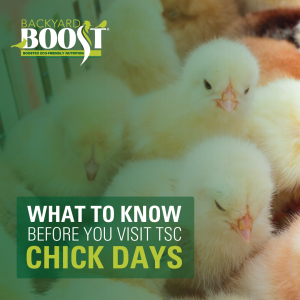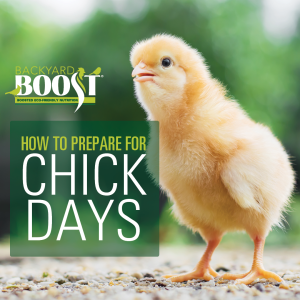
Healthy Hens
Whether you’re a seasoned poultry keeper or a novice enthusiast, the health of your flock is paramount. And, when it comes to their well-being, chickens are much like humans. They require the basic nutrients of life—water, sun, vitamins and minerals.
They need a clean space, an area for exercise, a “bathing” area and a safe place to rest at night. It is important to provide your chickens with these necessities, so they stay healthy.
But, there’s more to chicken health than just those basic principles. In this blog, we’ll delve into practical strategies to ensure the optimal care of your feathered companions. We’re going to explore topics ranging from balanced nutrition and effective coop management to proactive healthcare measures.
How To Ensure Healthy Hens
Chickens carry and spread disease to one another, and there are a handful of zoonotic illnesses (sicknesses that can be spread between species) that chickens carry. Healthy hens depend on a variety of best practices to help prevent diseases.
By implementing these guidelines, you’ll not only enhance the quality of life for your hens but also improve your coop for the better.
1. Keep Your Coop Clean
Arguably, chickens are not the cleanest animal you could choose to have. It’s up to you to help keep their coop and outside pens clean. This includes cleaning excess manure from both the inside and outside of the coop and keeping the waste away from the chickens to keep insects and other parasites away.
Make sure their coop and pens are dry. And be sure to provide clean, dry bedding. Keep feeders and drinkers outside (when warm weather allows) and provide fresh feed and fresh, clean water daily. If water is spilled in the coop, clean up any damp litter, and replace it with dry bedding as soon as possible.
Keeping a clean coop and pen helps eliminate odor-build up and decreases the chances of egg eating and breaking.
2. Give your Hens Space to Roam
Healthy hens need space to roam, peck for insects and get exercise. Crowded chickens are prone to cannibalism, egg eating, fighting, odor and disease. Depending on the size of breed you select, chickens typically need at minimum three to four-square feet of coop space each.
By allowing them time in an outdoor pen each day, you are letting them get sunshine, fresh air, the ability to peck and eat bugs, fluff their feathers and get a dust bath.
Did you say dust bath?
Bathing in the dust is an important part of keeping chickens healthy and clean. A dust bath helps remove excess oil and parasites like lice and mites, while it maintains the water resistance of the outer feathers of a chicken.
Providing a dry area with fine dirt and sand in the outside pens is an important part of making sure the chickens can get their dust baths.
3. Protect your Feathered Friends
Although you want your feathered friends to have space to exercise and ruffle their feathers, you also want to be sure to protect them from predators. Be sure to keep them in a fenced area where they won’t be bothered by dogs, rodents or other animals. You will also want to confine them to their coop at night, as birds are prey animals.
Be sure that the coop door is secure and there is no way for predators to get in and attack, hurt or kill your chickens. It is also important to make sure there are no holes dug under your coop if it does not have a floor. Dogs and rodents like possums and raccoons can dig and can dig and enter from underneath the outside wall, when you are least expecting it.
4. Nutrition Leads to Healthy Hens
Just like humans, good health and proper nutrition work closely together. A large percentage of immune cells are present in the gut at about 70%. A vital part of the relationship between healthy immunity and the prevention of disease or illnesses in the flock is proper nutrition. First, be sure to provide your flock with fresh, nutritional feed and water each day.
Next, supplement your feed regimen with a high-quality supplement from Backyard Boost®. Nutritional supplements like Backyard Boost not only help keep your hens healthy and happy, but they also help them convert and absorb the nutrients in the feed you are already supplying them.
Backyard Boost® Daily Essentials
Backyard Boost Daily Essentials is a pelleted protein supplement for poultry designed to maximize digestibility and egg production. Daily Essentials contains AO-Biotics® Amaferm®, a prebiotic research-proven to enhance digestibility and AO-Biotics® EQE, a postbiotic research-proven to enhance egg quality. Additionally, this supplement provides nutrients needed for overall well-being.
Backyard Boost Daily Essentials is the first supplement for backyard chicken enthusiasts to include AO-Biotics EQE, the first-and-only postbiotic created specifically for layers. EQE, or Egg Quality Enhancer, has three primary benefits:
- More sellable eggs
- Improved egg mass
- Increased productive life span
With the prebiotic, postbiotic, and additional protein working together in this daily supplement, you can start seeing happy and healthy hens, which means hens that are laying anything but ordinary eggs.
Backyard Boost Defense
Backyard Boost Defense is a liquid supplement for poultry designed to support digestion and a healthy immune response. This green liquid also includes Amaferm. It provides nutrients needed in times of stress and promotes water intake and hydration. In addition, it contains MOS, to help normalize gut microflora and support the immune system.
Easily added to water daily for best freshness, Defense can be used during the added stresses or transitional times that include seasonal changes throughout the year, the new, young chicks or mature chickens added to the flock or also to support digestion and a healthy immune response during the annual and normal process of molting.
5. Create a Health Management Plan
A proactive plan is always a better approach than a reaction. Make sure you have a health management plan implemented to maintain a flourishing flock. Most chicks that come from a hatchery will be vaccinated. However, if you are raising your own chickens, you will definitely want to inoculate for coccidiosis. There is a medicated feed for this, but be aware not to feed it to laying hens.
It is also important to deworm your chickens twice a year, typically in spring and fall. You should also treat your flock for lice and mites twice each year, as well as treat the chicken pen with powder.
We always recommend consulting with your local veterinarian for any medical advice. Establishing a relationship with a trusted veterinarian is the best practice for keeping your flock on a good medical protocol. It will also help if you do have a hen who becomes ill to have an established client-patient relationship.
Avoid Introducing Unwanted Diseases
Diseases are all around us, and we don’t always think about where they could be lurking. Avoid bringing unwanted diseases by following these protocols.
Avoid Rodents
It might seem obvious that you want to avoid rodents; after all, they are primarily predators. However, what you want to avoid even further is rodent feces. Parasites and diseases are carried in rodent feces. These are often found in and around feed sacks that are left open or in areas where these pesky rodents can get access. Be sure to keep your chicken feed in a secure, clean area. Some people even put it in a secure plastic container with a lid like a trash can or tote.
Steer Clear of Wild Birds
Wild birds are disease and parasite carriers. Try to limit access to your flock from wild birds. You can do this by keeping your chickens fenced up. Use a netting above them to keep them from flying off and prevent wild birds from landing in their personal space. Keep your hens’ feed and water away from wild birds. One of the most prevalent and widespread diseases that the U.S. has been dealing with in the last two years is Highly Pathogenic Avian Influenza (HPAI).
Isolate New Birds
It’s always exciting to get new additions to your feathered family. However, they could be carrying unwanted diseases and parasites. Whenever you introduce new birds to your flock, be sure to isolate them for two weeks to ensure your other chickens stay healthy. It might even be wise to put one of your original birds with them for that time, and if it stays healthy, then you are safe to put the new birds with the rest of the flock.
Remember to vaccinate any new birds and put them on your flock’s health program to keep them feeling their best. It is also advisable to give new birds Backyard Boost Defense to get them acclimated.
Get your Backyard Boost Today
Nutrition and health work synergistically. If you want healthy hens that are productive, make sure you provide them with nutrition from Backyard Boost.
Backyard Boost is available for purchase online.
Maybe you prefer to shop locally? You can find a dealer near you at our dealer locator.
Stay Up to Date
You can sign up for our monthly electronic newsletter or find out more information about caring for your chickens.

